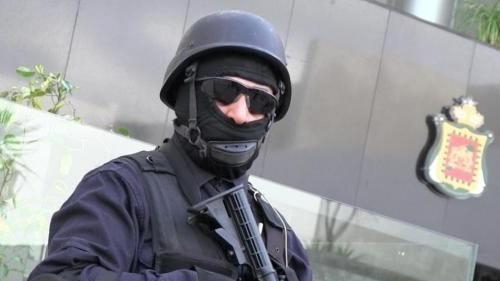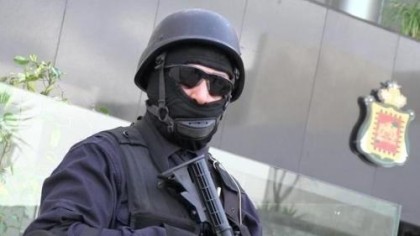
Joint Moroccan-Spanish Operation Nets Four IS Recruiters
 An anti-terrorism operation jointly conducted by Moroccan and Spanish intelligence services in the enclave of Sebta and in the town of Nador led Tuesday at dawn to the arrest of four men suspected for recruiting fighters for the Islamic State terrorist group.
An anti-terrorism operation jointly conducted by Moroccan and Spanish intelligence services in the enclave of Sebta and in the town of Nador led Tuesday at dawn to the arrest of four men suspected for recruiting fighters for the Islamic State terrorist group.
According to the announcement made in both countries, the four men built up a terrorist recruiting and radicalization cell which sends fighters to the Islamic State and recruits individuals ready to perpetrate terrorist attacks in any of the two countries on behalf of the Islamic State.
The Moroccan Interior Ministry additionally points out that the four-member cell includes a former Guantanamo inmate who fought in Afghanistan as well as the brother of a suicide bomber who blew himself in Syria in 2013 when he attacked a barrack of the army of Bashar Al Assad.
According to Spanish daily ABC, the suicide bomber, Rachid Wahbi, is a Moroccan jihadist who was working in Sebta as a taxi driver. He allegedly joined Al Qaeda in Syria in 2012. His suicide attack aboard a truck packed with explosives killed at least 130 people.
The Tuesday operation is, according to Moroccan security authorities, part of the two countries’ cooperation in the fight against terrorism.
In a separate development, Moroccan authorities have raised the security level at foreign diplomatic missions, institutions and schools across the kingdom following the dismantling last Thursday of a dangerous ten-member terror cell that was planning the following day, Friday, a series of attacks against political and economic institutions, the assassinations of politicians and military ranking officers as well as attacks against police and military posts to steal weapons.
Security authorities who fear that IS militants may plan attacks against areas frequented by foreigners have beefed up security at foreign schools and missions across the country and banned any gathering in front of schools at the end of classes or during breaks.
Investigations conducted following the arrest of the ten-member cell that included a French national and a 16-year old minor, suggest that IS has changed its tactics. So, rather than recruiting young Moroccans among the foreign fighters in its training camps in Syria, Iraq or Libya to perpetrate attacks in their home country, the group recruits, indoctrinates and trains local militants to carry out its deadly schemes.
